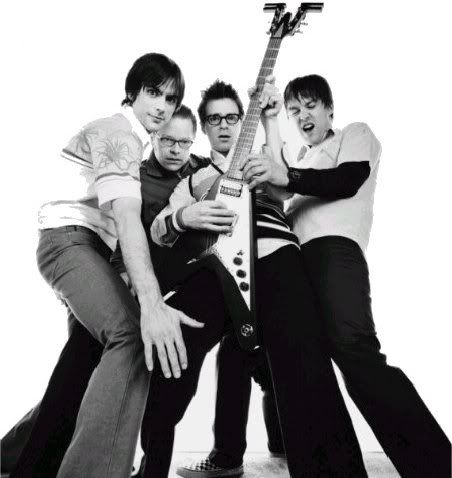 Not only does Weezer's "Buddy Holly" music video appeal to a wide range of contexts, but it also connects just as strongly with the three main rhetorical appeals: pathos, ethos and logos. Though the video touches on all three, it most strongly hits ethos.
Not only does Weezer's "Buddy Holly" music video appeal to a wide range of contexts, but it also connects just as strongly with the three main rhetorical appeals: pathos, ethos and logos. Though the video touches on all three, it most strongly hits ethos.Throughout the entire video, Weezer's fullest intention is to mimic the 1950's set sitcom, "Happy Days." Obviously, Weezer's music is set to a younger audience, so by creating a parody of an older show, Weezer is gaining respect from older folks watching that may have thought down on the band judging them solely on their chosen musical genre.
Beyond the platform that the video is based around, Weezer also employed the help of former “Happy Days” star Al Molinaro to give an introduction and play a part throughout the video. This again brings up the point of ethos. By having a somewhat-major celebrity in the video, Weezer can play off the appearance that they have “made it” as a band to the point where celebrities will be willing to take part in the band’s music.
Lastly, as the band members are walking off stage after the show, Restaurant owner Al asks Weezer bassist Matt Sharp how he liked the fish, to which Sharp responded, “Not good, Al.” Such a simple statement could be easily overlooked at the end of a video, but in this case, the comment shows humor and with the audience laughter in the background, pushes for a bandwagon affect on the viewer. In fact, in any place in the video where the patrons start dancing or the other “extras” in the video show they are having a good time, Weezer is garnering ethos from the video viewers. Because the people in the video are having a good time, the viewers will gain ethos for the video through their enjoyment. Obviously this touches strongly on pathos as well, but the end result is credibility and acceptability for Weezer as a band and “Buddy Holly” as a song.
No comments:
Post a Comment